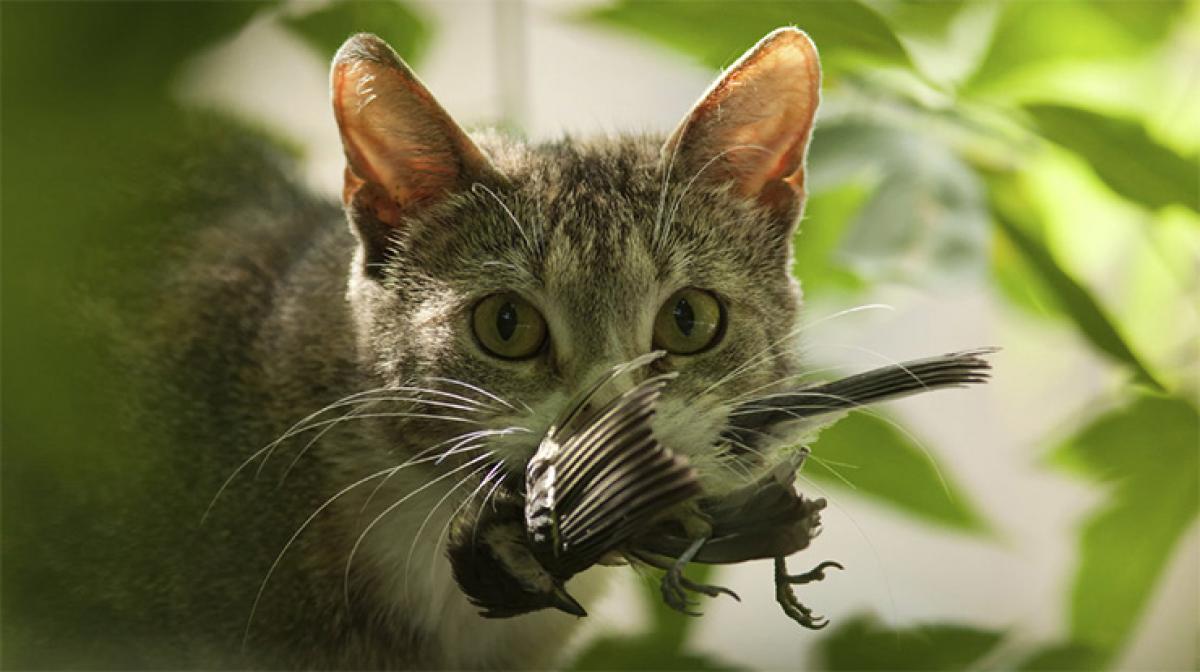Cats are predatory by nature

You may be fond of cats but perhaps you may not be aware of the predatory nature of the felines and the number of animals a cat kills on an average -- thus being harmful to local wildlife, reveals a new study. Researchers studied cats from two villages in England and found that although cat owners were broadly aware whether their cat was predatory or not, those with a predatory cat had little idea of the number of prey it typically caught.
London: You may be fond of cats but perhaps you may not be aware of the predatory nature of the felines and the number of animals a cat kills on an average -- thus being harmful to local wildlife, reveals a new study. Researchers studied cats from two villages in England and found that although cat owners were broadly aware whether their cat was predatory or not, those with a predatory cat had little idea of the number of prey it typically caught.
"Owners proved to be remarkably unaware of the predatory behaviour of their cat... they also did not agree with any measures that might limit the impact that cats have on local wildlife," said co-author Matthew Evans, professor of ecology at Queen Mary University of London.
.jpg)
In the study, a total of 58 households, with 86 cats were involved. Owners' views regarding their cats' predatory behaviour was assessed by comparing predictions of the number of prey their cat returns with and the actual numbers bought home. The majority of cat owners did not agree that cats are harmful to wildlife and were against suggestions that they should keep their cat inside the house as a control measure.
The results indicate that management options to control cat predation are likely to be unsuccessful unless they focus on cat welfare. "Our study shows that cat owners do not accept that cats are a threat to wildlife, and oppose management strategies with the exception of neutering.
There is a clear need to directly address the perceptions and opinions of cat owners," said Jenni McDonald from the Centre for Ecology and Conservation at the University of Exeter's Penryn Campus. The study was published in Ecology and Evolution.














